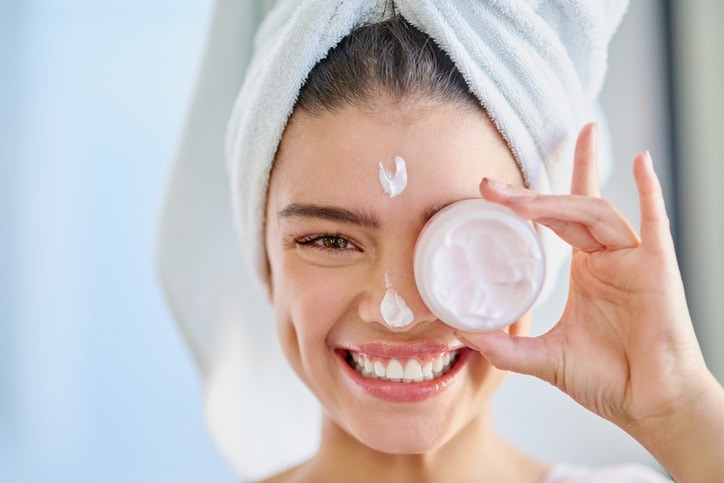Debunking Skincare Myths: What You Need to Know
There are countless skincare myths circulating out there, often leading to confusion and ineffective routines. Let’s debunk some common misconceptions and set the record straight.
Myth 1: The More You Exfoliate, the Better
While exfoliation can help remove dead skin cells and improve skin texture, excessive exfoliation can irritate and damage the skin barrier. Aim for gentle exfoliation 2-3 times a week, depending on your skin type.
Myth 2: Clogged Pores Cause Acne
Pores don’t actually “get clogged.” Acne is caused by a combination of factors, including excess oil production, bacteria, and inflammation.
Myth 3: Natural Products Are Always Better
While natural ingredients can be beneficial, it’s important to remember that “natural” doesn’t always equate to “safe.” Some natural ingredients can be irritating or even harmful to certain skin types. Always do your research or consult with a dermatologist.
Myth 4: You Should Wash Your Face Twice a Day
For most people, washing their face once a day is sufficient. Over-washing can strip the skin of its natural oils and lead to dryness and irritation.
Myth 5: Aging is Inevitable
While aging is a natural process, there are ways to slow down its visible effects. A healthy lifestyle, sun protection, and a good skincare routine can help maintain youthful-looking skin.
Myth 6: Expensive Products Are Always Better
The price of a skincare product doesn’t necessarily correlate with its effectiveness. Many affordable options can provide excellent results. Look for products with proven ingredients and avoid falling for marketing hype.
Myth 7: DIY Masks Are Always Effective
While homemade masks can be fun and cost-effective, they may not always provide the same benefits as professionally formulated products. It’s important to use ingredients that are suitable for your skin type and avoid potentially irritating substances.
Remember, everyone’s skin is unique, and what works for one person may not work for another. It’s essential to listen to your skin, experiment with different products, and consult with a dermatologist if you have any concerns







Post Comment